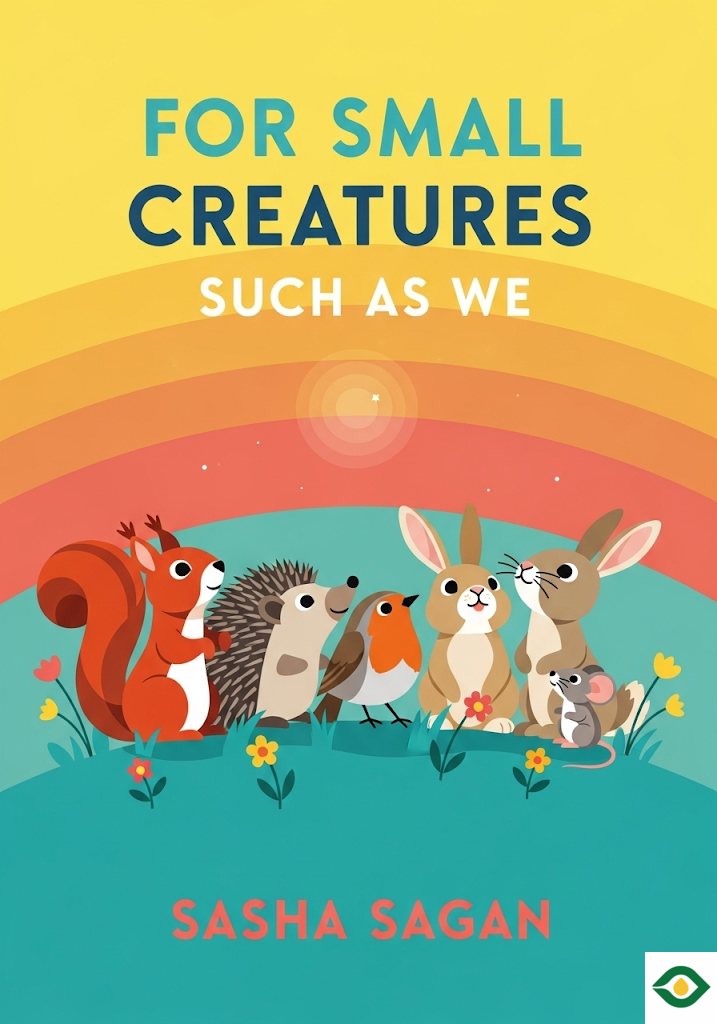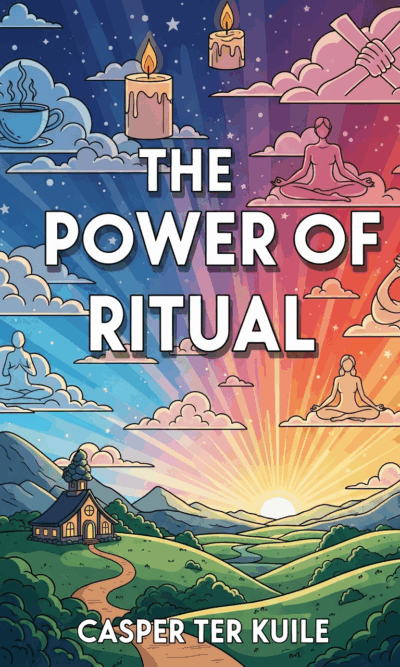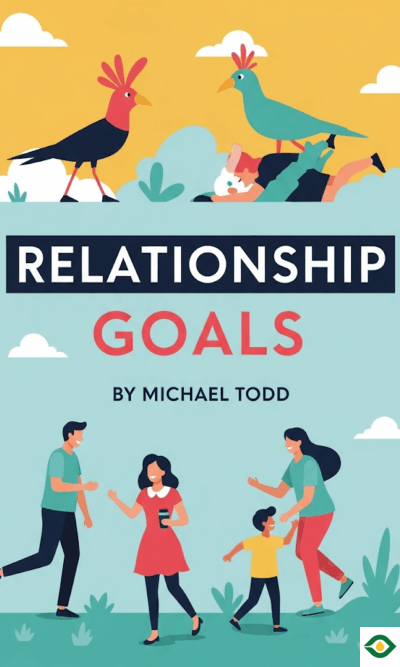Description
Life is full of moments that call for meaning. Birth, marriage, love, friendship, grief, or even a morning coffee—each can be more than just a passing event. Rituals give these moments shape and weight. They remind us that life, however short, can feel important. Traditionally, rituals have been tied to religion or cultural traditions. But Sasha Sagan, in For Small Creatures Such as We, shows us that rituals don’t need to come from faith or dogma. We can create our own, rooted in love, memory, and wonder at the universe.
The title itself reflects the human condition. Compared to the size of the universe, we are small. Our lives are brief. Yet in that smallness lies something beautiful—we can still shape meaning. Rituals are one way to do so.
Take birth as an example. The odds of any one of us existing are unbelievably tiny. Millions of chance encounters and decisions had to occur for us to be alive. Every human life is a small miracle. Across cultures, people have created ways to honor this miracle—baptisms, naming ceremonies, feasts, or tree-plantings. Sagan suggests we can make our own rituals for new life, simple or grand, private or shared. Maybe it’s reading a poem to your child, planting a flower in their name, or simply gathering loved ones in a moment of gratitude.
Beyond birth, everyday rituals also matter. A ritual doesn’t need to be tied to grand events—it can be as small as making tea every morning or sharing a meal with friends once a week. These actions may seem ordinary, but when repeated with intention, they bring stability and comfort. For Sagan, her husband bringing her coffee each morning is more than a habit—it’s a reminder of care, love, and the chain of effort that led to the drink in her hands, from farmers to roasters to the kitchen. Something as simple as coffee becomes a celebration of connection.
Community is another reason rituals are powerful. Religion has historically offered community through shared practices. But people without faith can still build their own gatherings. Sagan once started a dining group in New York City—friends meeting regularly to eat together. Over time, it grew, spreading to other cities as members moved away. It wasn’t tied to a sacred text or a temple. It was just people choosing to connect. That choice itself became sacred.
Nature, too, has always inspired ritual. The tilt of the Earth at 23.4 degrees gives us seasons, and with them, reasons to celebrate. Spring represents new life, harvest symbolizes abundance, winter solstice marks the return of light. Many festivals around the world—religious or cultural—are rooted in these natural cycles. But you don’t need a religion to celebrate the arrival of spring or honor the passing of autumn. Even lighting a candle at the darkest point of winter can become your own ritual of hope.
Rituals also help us process guilt and mistakes. Every human hurts others at some point. Traditional religions often provide confession or atonement. But even outside of those systems, admitting our wrongs, apologizing, and forgiving can be rituals of healing. Sometimes this can be as simple as saying sorry for a small argument, followed by a kiss or a hug. That, too, is ritual—an intentional act that repairs bonds and lightens the burden of guilt.
Anniversaries, birthdays, and yearly milestones are another place where ritual shines. Each birthday reconnects us to the cycle of the Earth moving around the Sun, returning us to the same cosmic point as a year ago. Lighting candles, making wishes, or even gathering with friends—all are rituals that remind us of time passing, of survival, and of gratitude for another year of life. These moments also remind us of those we’ve lost. Lighting a candle for someone who has died can make us feel their presence, just as we see the light of stars long after they are gone.
Weddings, too, are a perfect example of rituals blending love, history, and personal creativity. Traditions like throwing rice or wearing rings once had symbolic roots. Couples today can choose which rituals to keep and which to invent. Sagan herself mixed Jewish, Christian, and Greek traditions at her own wedding, but the most meaningful parts were the personal ones—like wrapping her late father’s necktie around her bouquet. Ritual gave her a way to honor both love and loss at the same time.
Sex and relationships are also full of ritual. Though often weighed down with rules and taboos, sex has always been central to human existence. Traditions around marriage, honeymoons, or fertility ceremonies reflect the power of intimacy and connection. Some communities celebrated sex openly, while others imposed restrictions. But beneath the differences, rituals show how deeply humans try to shape and understand something so fundamental.
And finally, there is death—the greatest passage of all. From burial to cremation, from mummification to exhumation, humans have always used ritual to face grief. These practices help us honor the dead, but also help the living process loss. Covering mirrors, putting up posters, or lighting candles are all ways of saying: “We remember.” Ritual gives form to our sorrow and reminds us that though life is short, it is meaningful.
The beauty of rituals is that they don’t belong to one culture or religion. They are part of what it means to be human. They help us celebrate joy, process pain, connect with each other, and find meaning in a universe that is vast and often indifferent. We don’t need to inherit rituals unquestioningly. We can adapt them, create new ones, or combine elements that speak to us personally.
At its heart, For Small Creatures Such as We is a gentle guide to finding wonder in daily life. It asks us to notice the cosmic patterns that shape our world—the tilt of Earth, the orbit of planets, the light of distant stars—and to bring that sense of wonder into how we live. Whether it’s planting a tree, sharing a song, apologizing with intention, or lighting a candle, rituals remind us that even though our lives are small in the scale of the universe, they are filled with meaning.
To be alive is improbable. To love, to celebrate, to grieve, to remember—these are the ways we give shape to our fleeting existence. Rituals are not about strict rules or ancient doctrines. They are about making life feel sacred in its own way. For small creatures such as we, that is enough.





